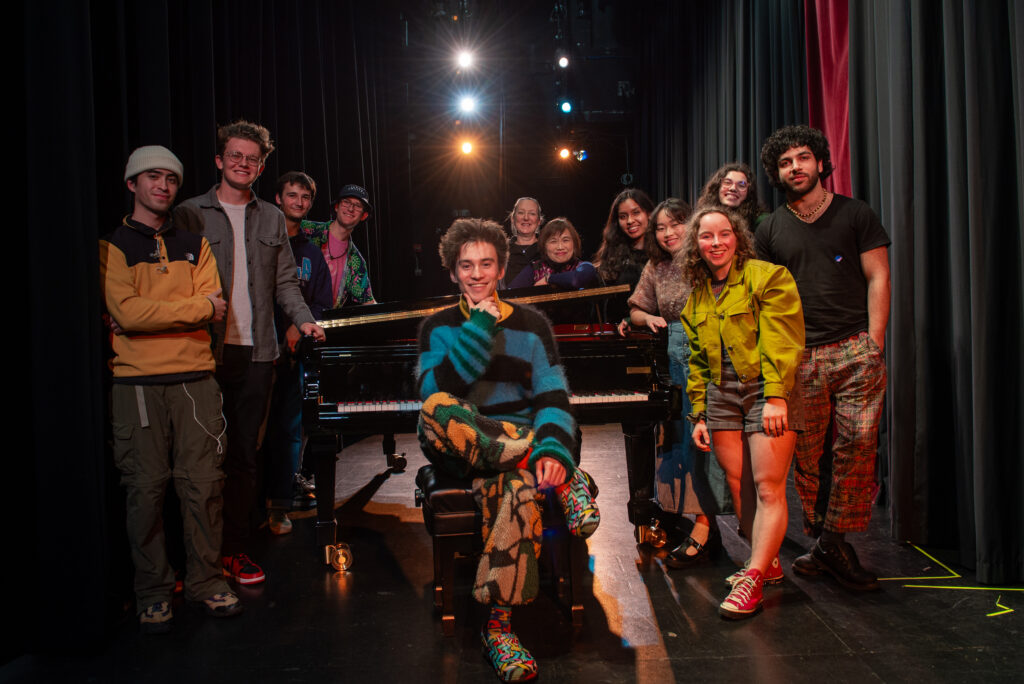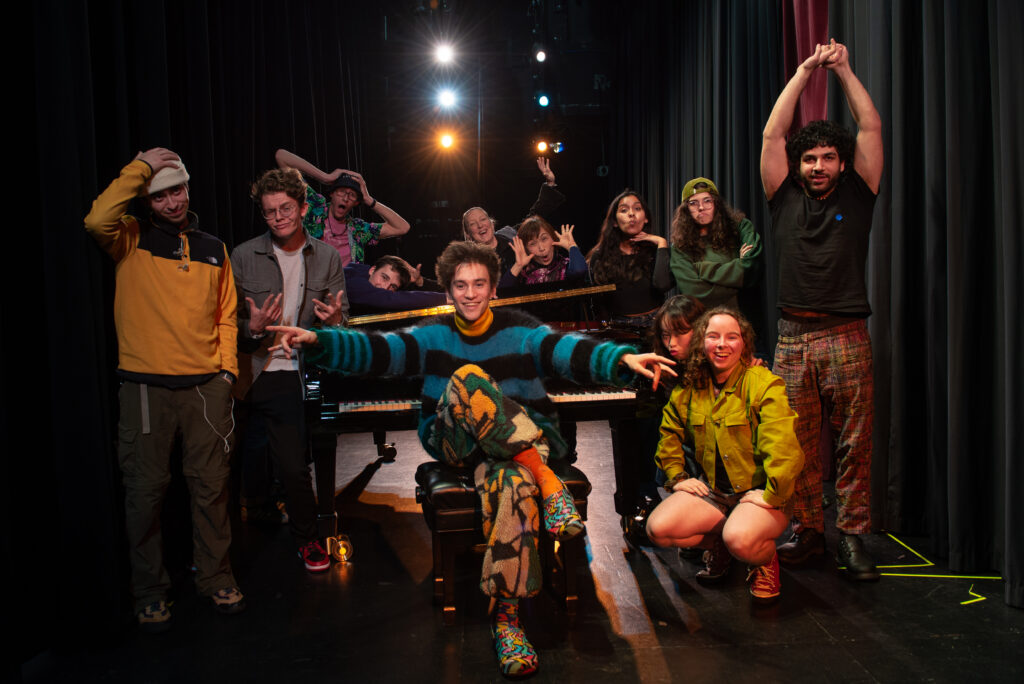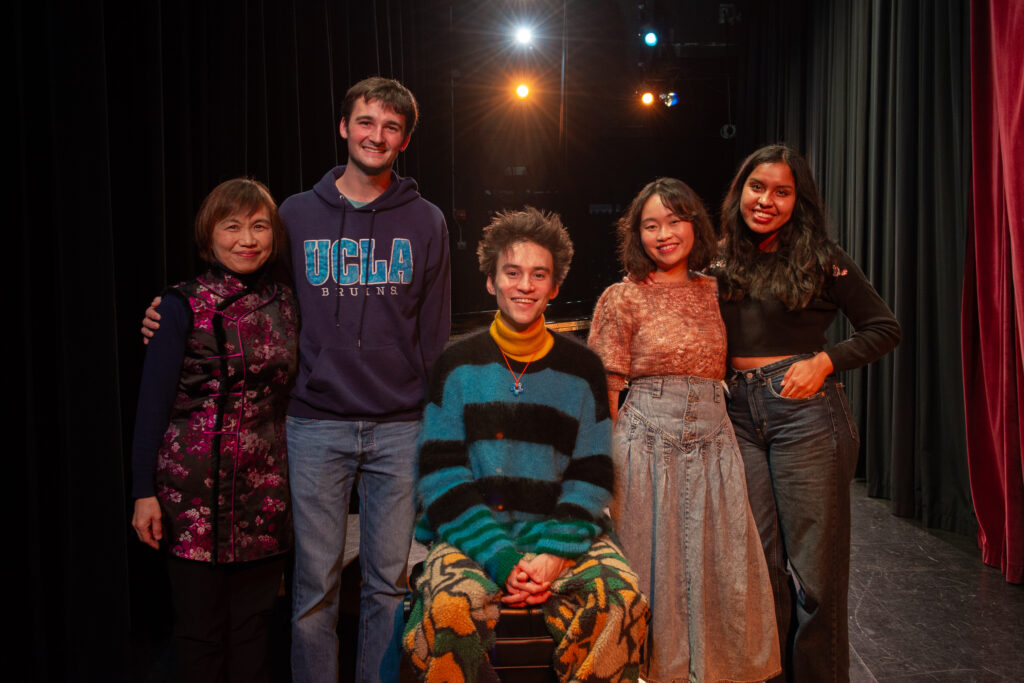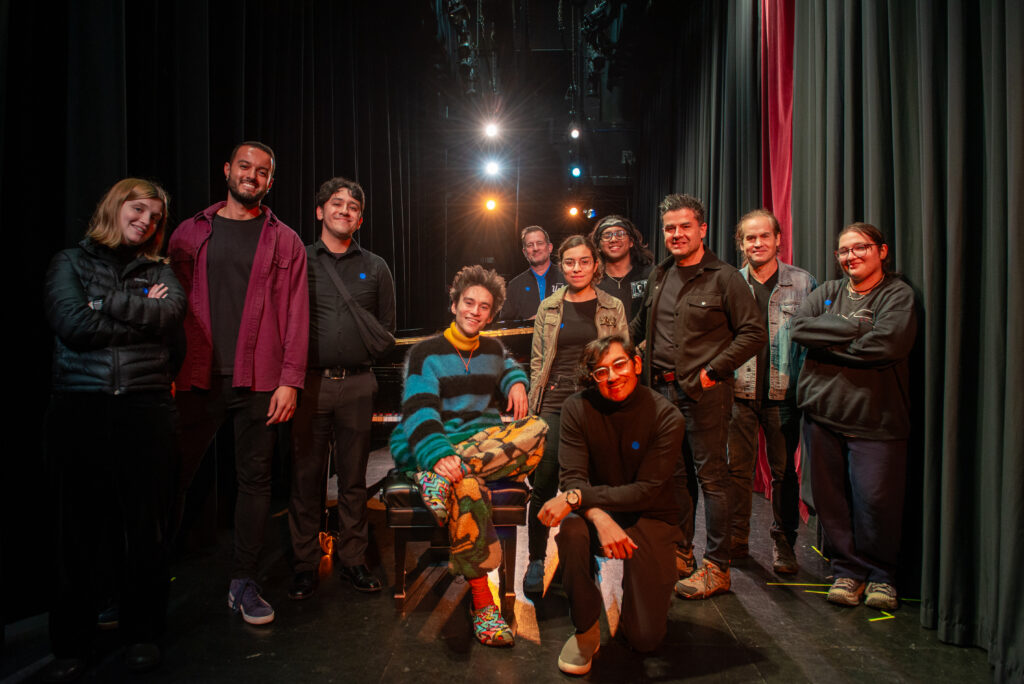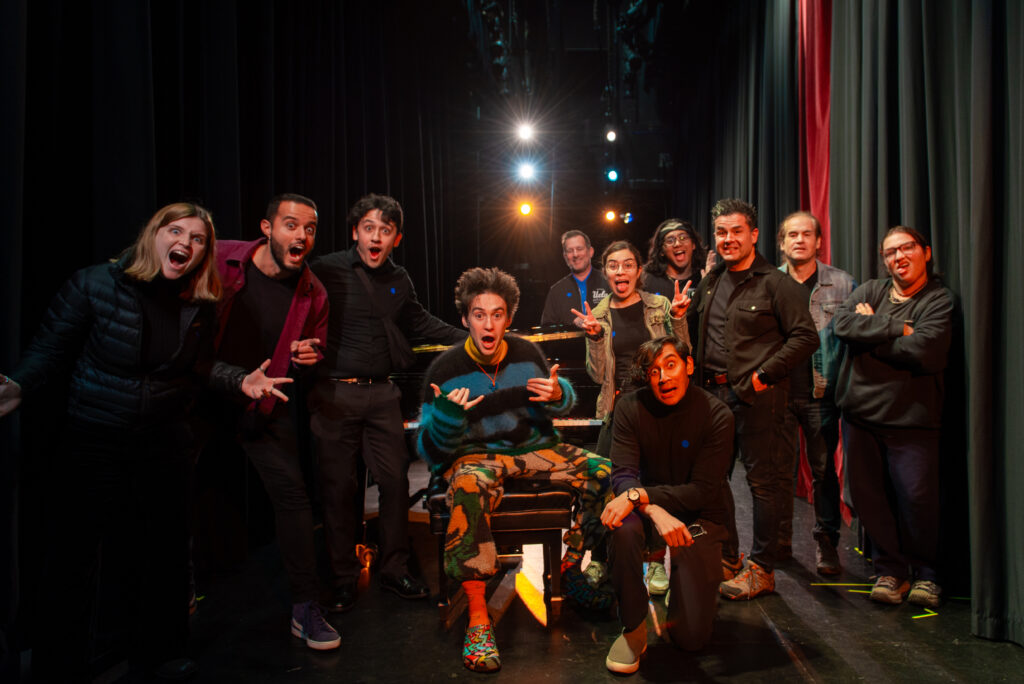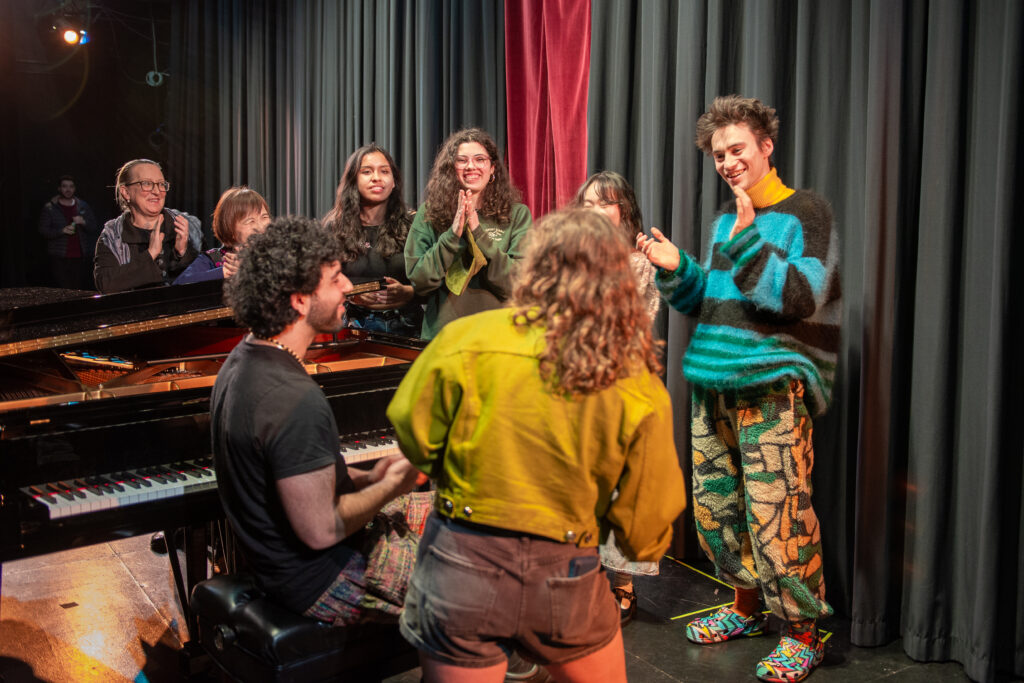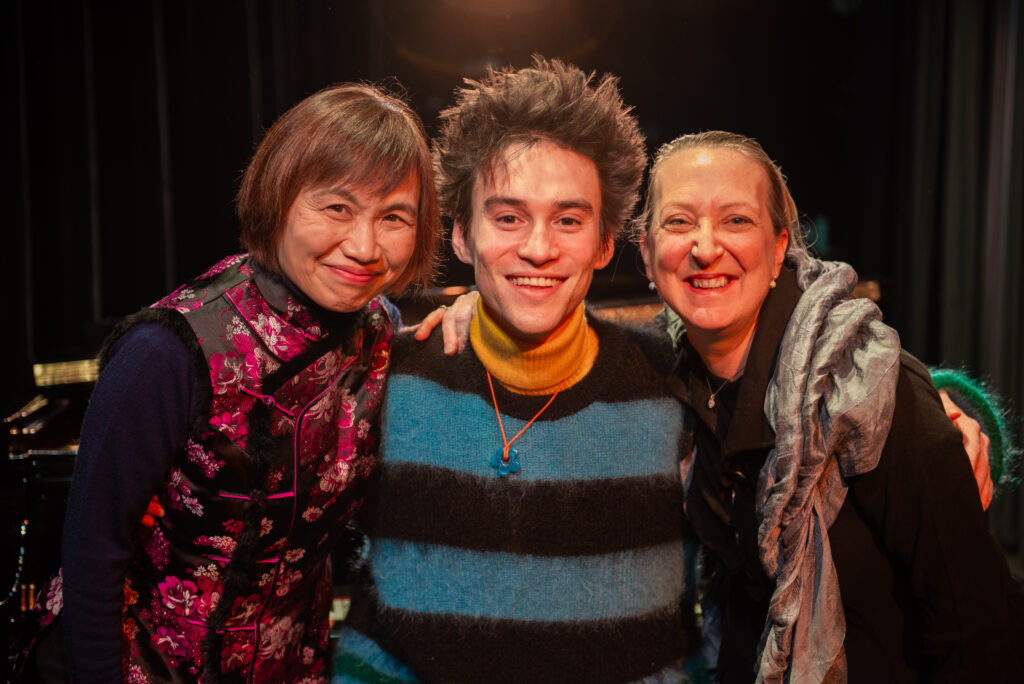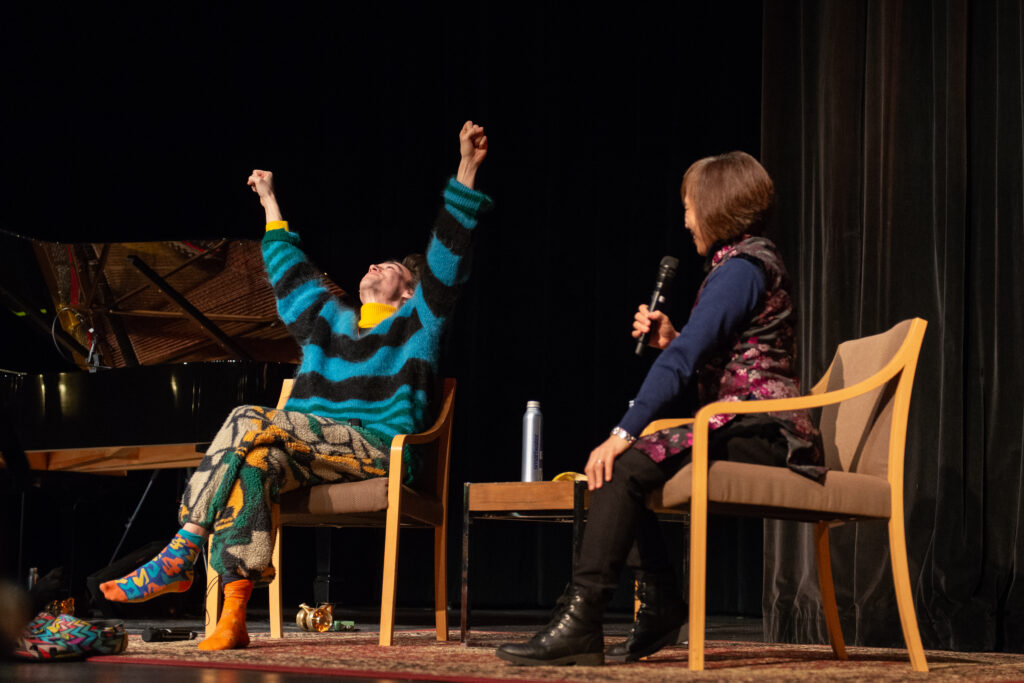Photos by Erica Hou
On Tuesday night, February 6, the line that had formed several hours earlier snaked out of Schoenberg Hall and down the steps. Those who braved the line faced a brisk westerly wind and the last vestiges of the atmospheric river that doused Los Angeles raining down, albeit gently.
They had come to see Jacob Collier, the six-time Grammy Award-winning musician whose collaborations have included Herbie Hancock, Quincy Jones, Coldplay, Stormzy and countless others. Collier’s virtuosity and intricate musicianship has earned him a dedicated fan base, even if he may not yet be a household name. (In a gushing profile, Rolling Stone UK dubbed him “your musician’s favourite musician” and wondered aloud why no one has heard of him.)
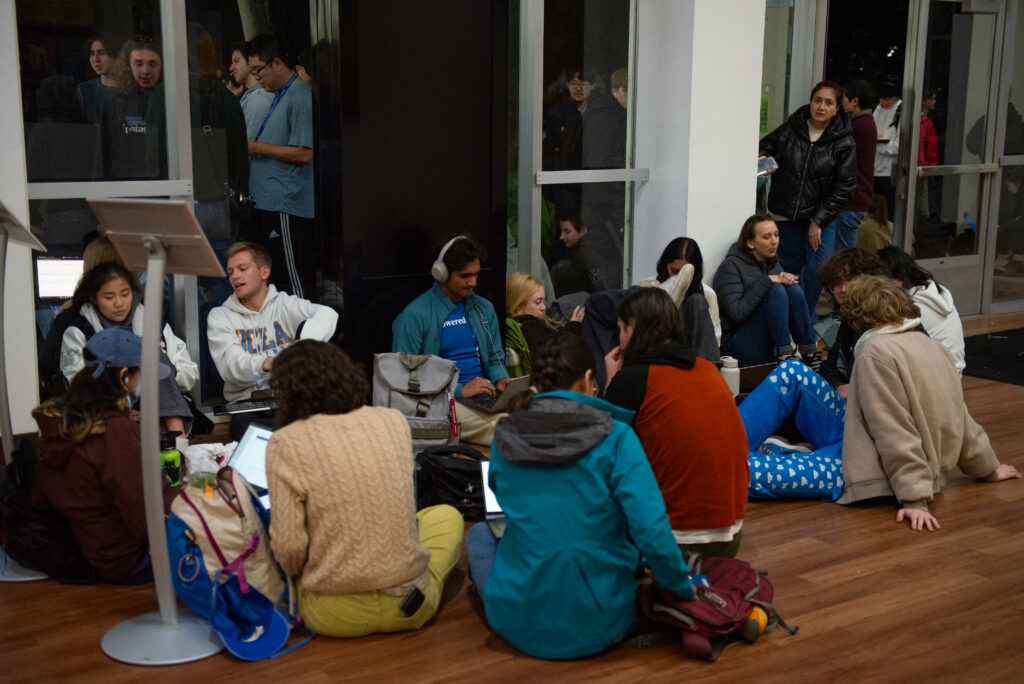
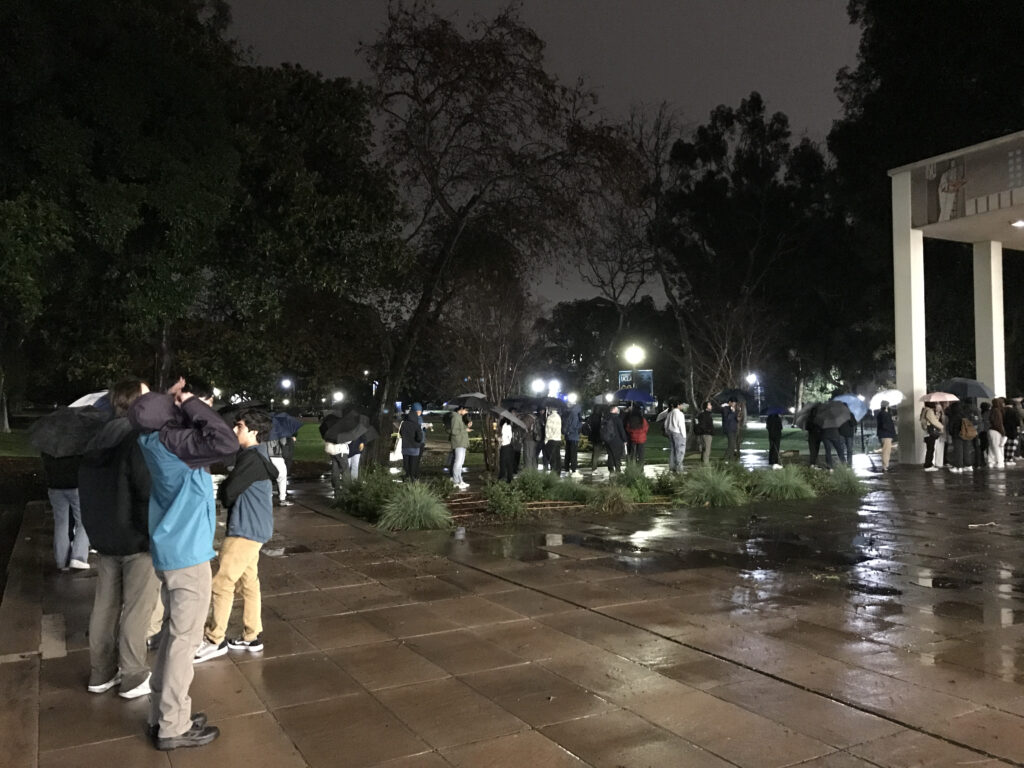
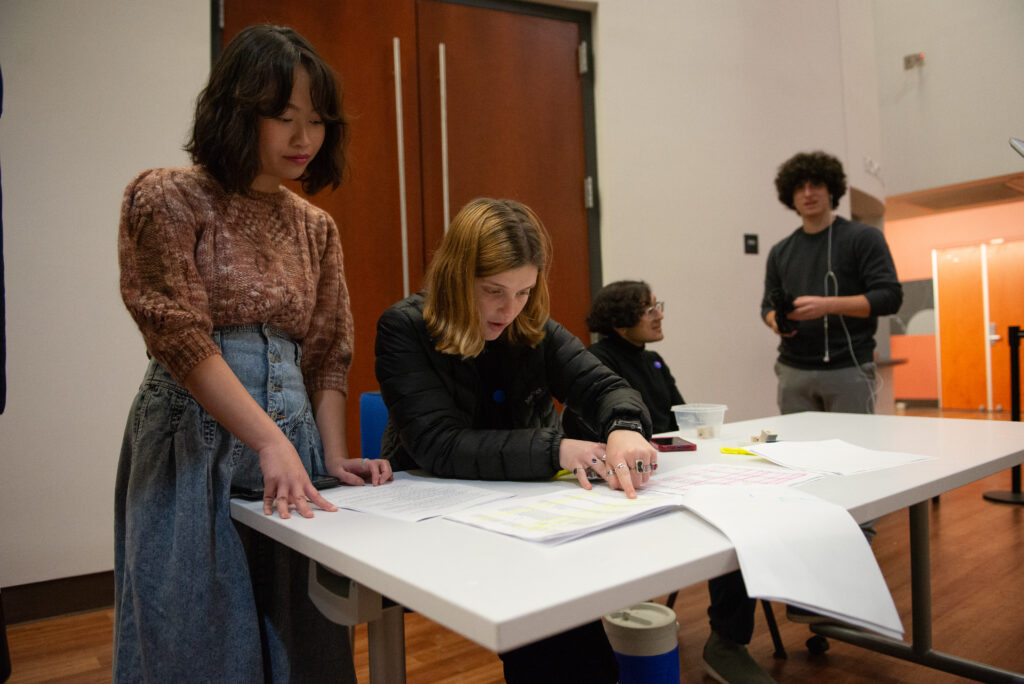
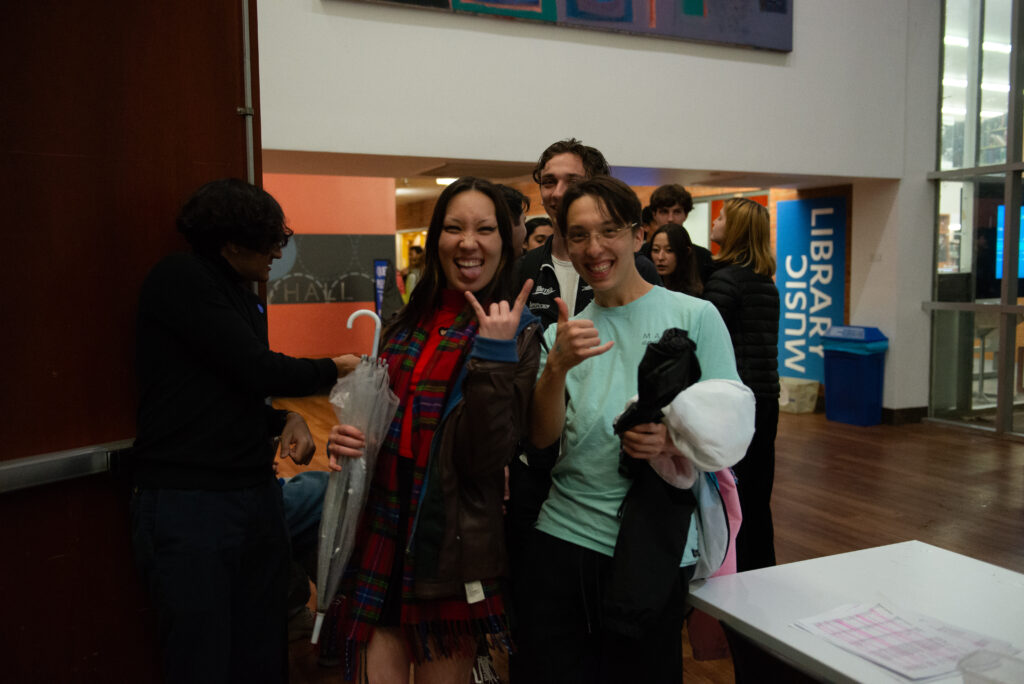
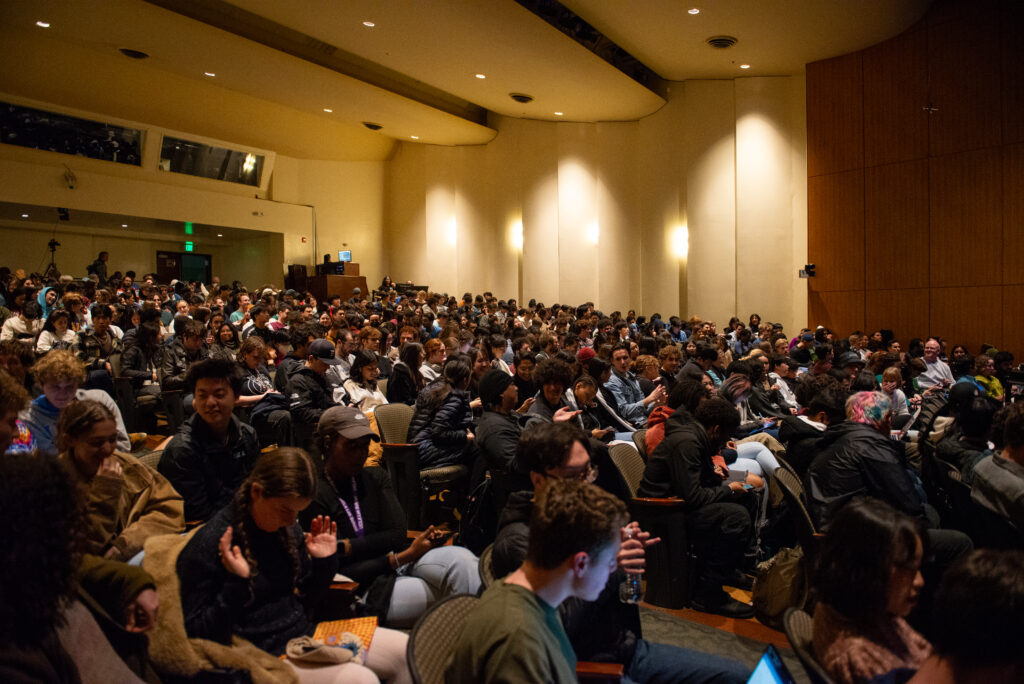
Collier’s reputation is greatest among people who know music. He is a musician who delights in bridging the gap between popular and artistic mediums and resists labels. His work is grounded in a deep understanding of the mechanics of music theory. And he arrived not just to play music at UCLA, but to talk about contemporary musicianship for students at UCLA. “It’s always amazing to see someone with classical training exceed extraordinarily in the contemporary music industry,” said Hannah Verduzco, a third-year music education major.
Collier appeared in good spirits before a packed Schoenberg Hall. After an introduction from Eileen Strempel, the inaugural dean of The UCLA Herb Alpert School of Music, he engaged the crowd in a riveting performance that included one of his trademark audience choirs.
If you have never seen Collier turn his audience into a choir, it can be something of a shock to see him operating. Many performers revel in having audiences sing back their own lyrics to them, but Collier turns his audience into an improvisational part of his performance.
“It was his first audience choir of 2024,” said Erica Hou, a fourth-year percussion performance major. “We all know about them, but we were excited to be the first.”
Collier gave a melodic line to the audience to his left, and a supporting one to the audience at the right. As the two sang together, he added more voices, front and back. Then, running back and forth across the stage, he took the part of choir conductor, raising up the volume of one section, tuning others, bringing down a different section, then raising them together.
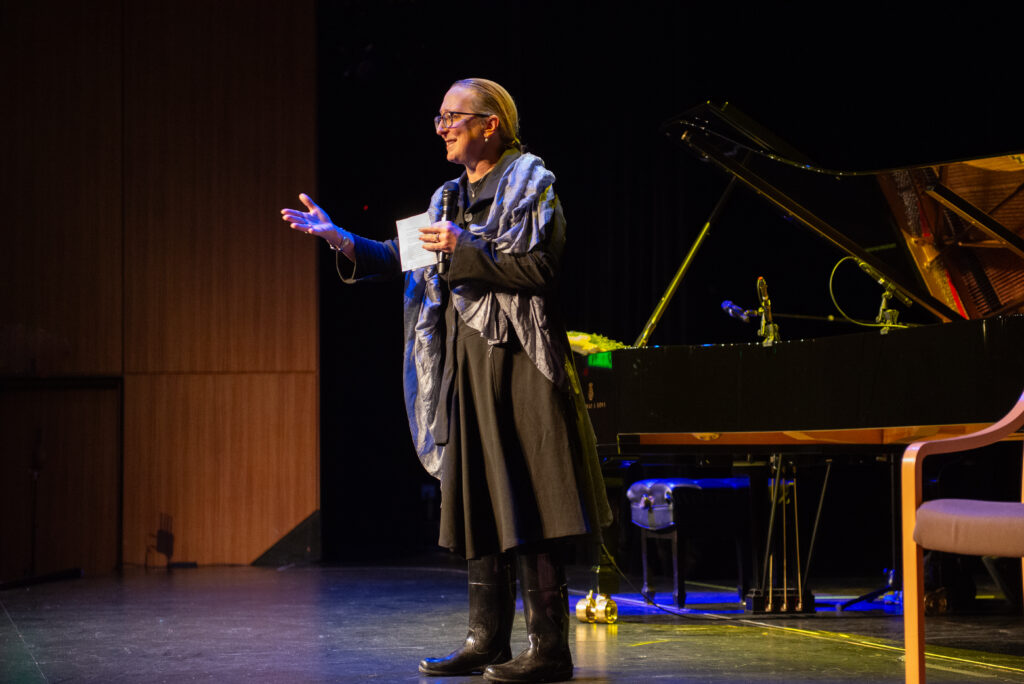
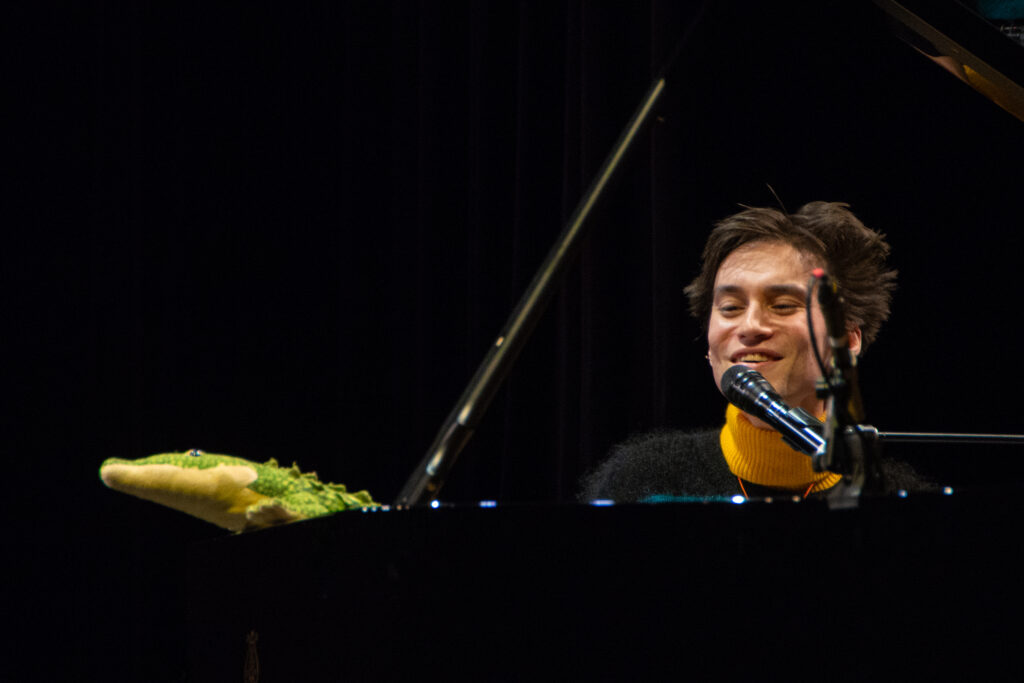
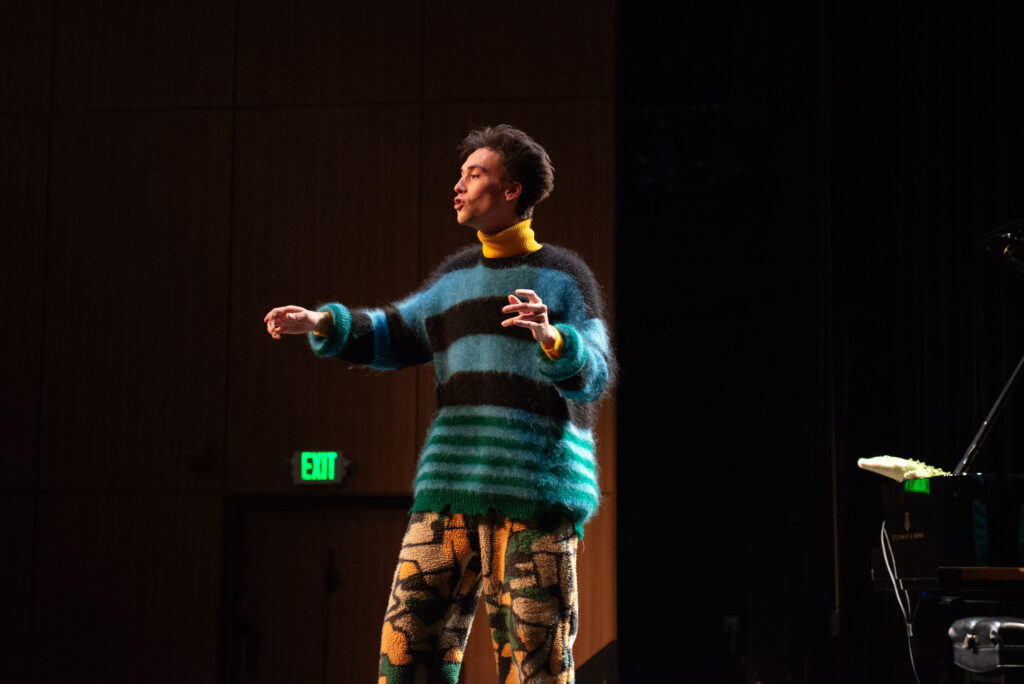
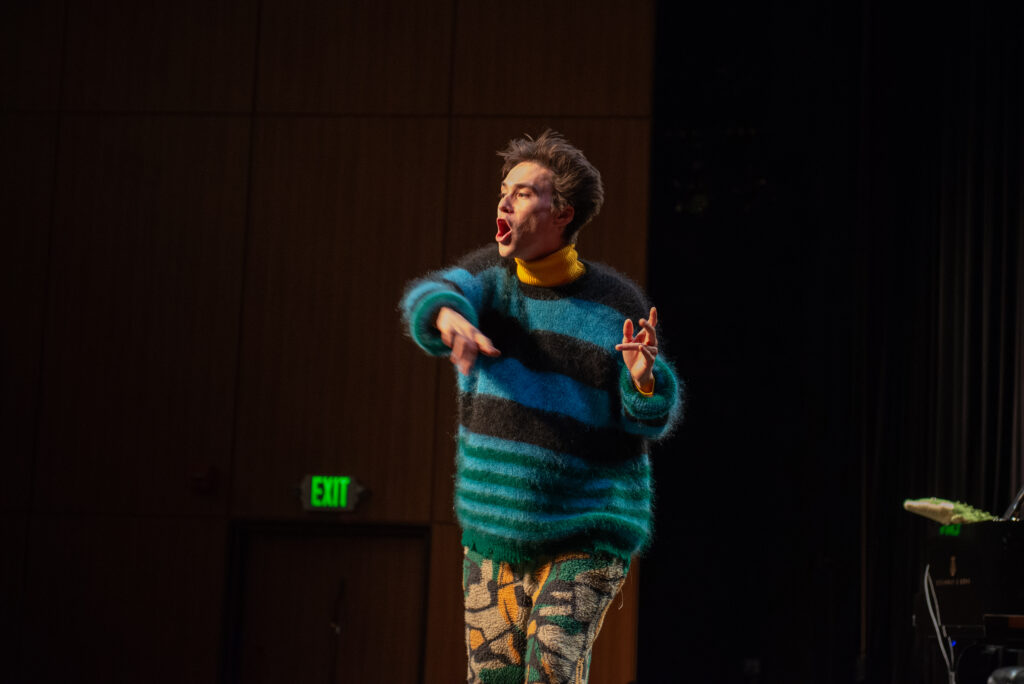
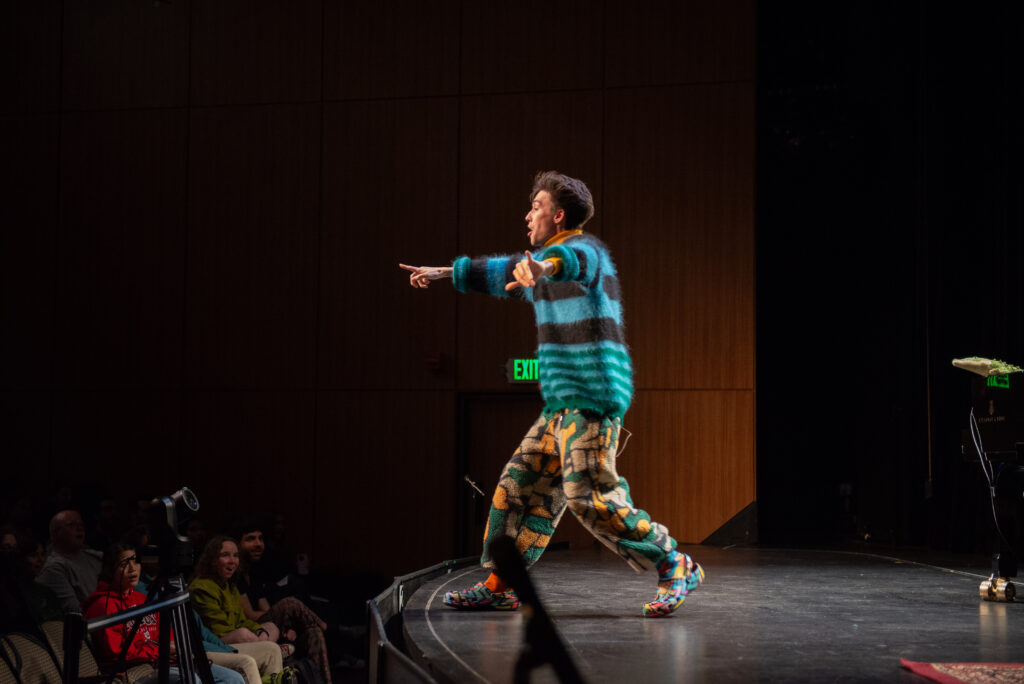
“It was incredible to see that energy, feel that energy,” said Ashley Dao, a fourth-year musicology major and one of the student representatives in the dean’s curriculum taskforce. Dao, who spent a significant amount of time behind the scenes organizing the event, (especially the students’ Q&A), understood precisely what this meant. Not since the onset of the 2020 pandemic has Schoenberg Hall been filled to capacity with an event that really brought the entire community together—not just students in the School of Music, but across the campus at large.
But it was more than just a big crowd, or a hall teeming with adoring fans. The thrill came from real-time, participatory music making and the swelling sense of community it engendered.
“Hierarchies fell apart,” said Dao. “Students sang with professors and with deans. It didn’t matter if you had formal musical training or not. We were all singing together.”
Collier appeared at the School of Music as a special guest of the dean’s curriculum taskforce, to speak on contemporary musicianship. And after warming up the crowd with his performance, he sat down to discuss the subject with Lily Chen-Hafteck, professor of music education and special assistant to the dean for curricular reform.
Chen-Hafteck’s work on curricular reform has included working with students and faculty to explore ways to bring the curriculum in line with what it takes to be a musician in the twenty-first century. While most of her work involves the demanding tasks associated with curriculum, she also knew that she wanted to plan an event. At first, she thought of planning a conference. But the idea of bringing in Collier, a successful musician with a deep and pervasive understanding of musical theory, seemed more stimulating.
So, after Collier’s riveting performance, she sat down with him on stage to talk about twenty-first century musicianship. The two settled into their chairs and talked about everything from the role of music theory in musical practice to cross-cultural collaborations.
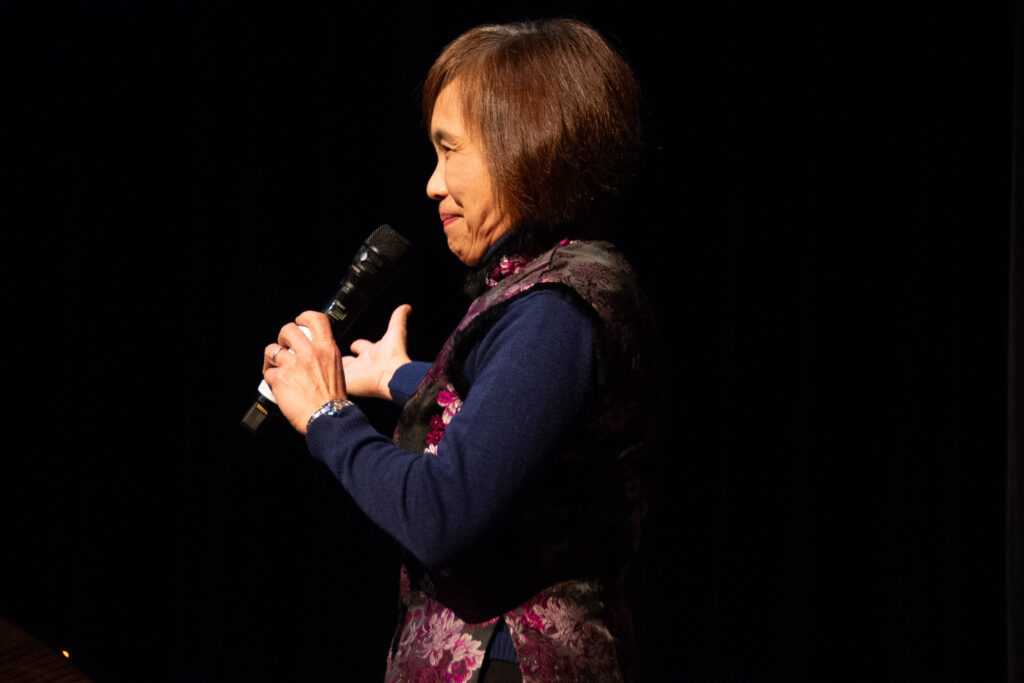
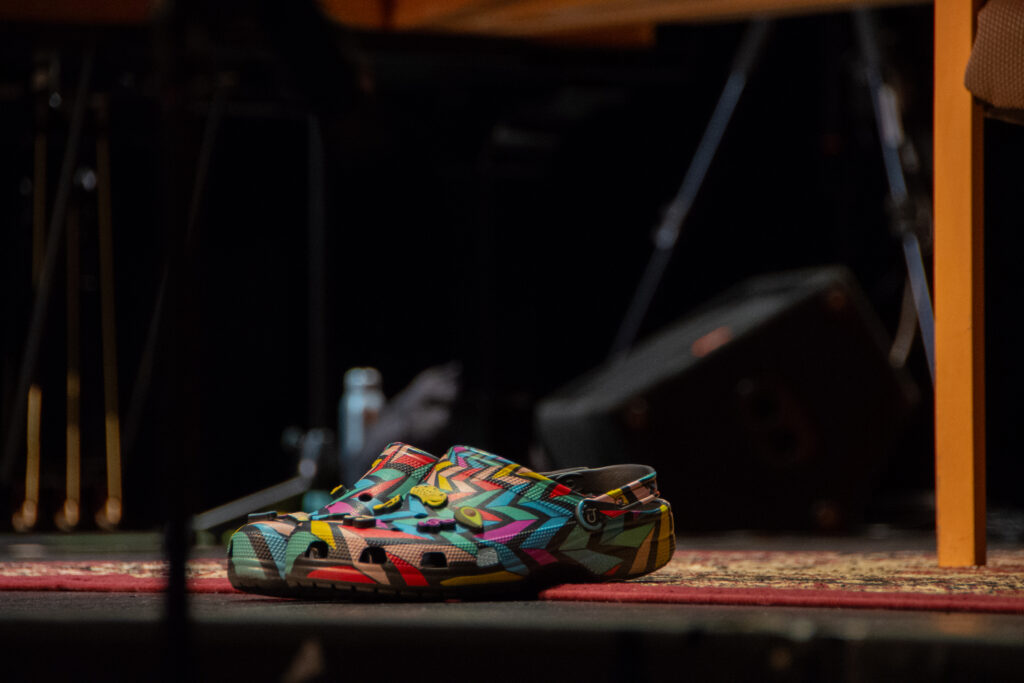
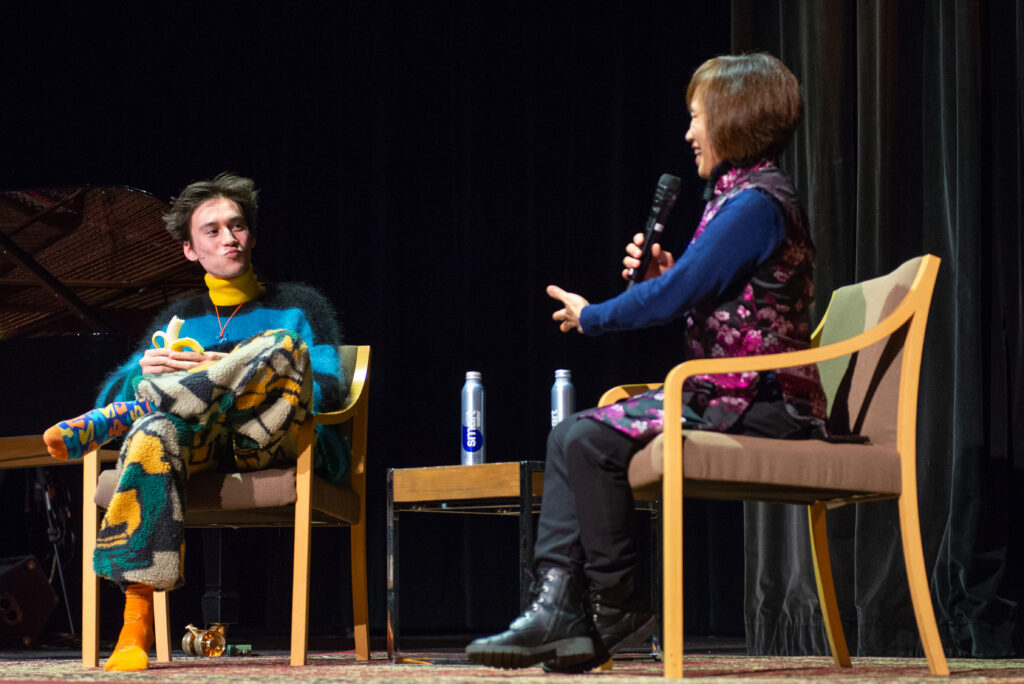
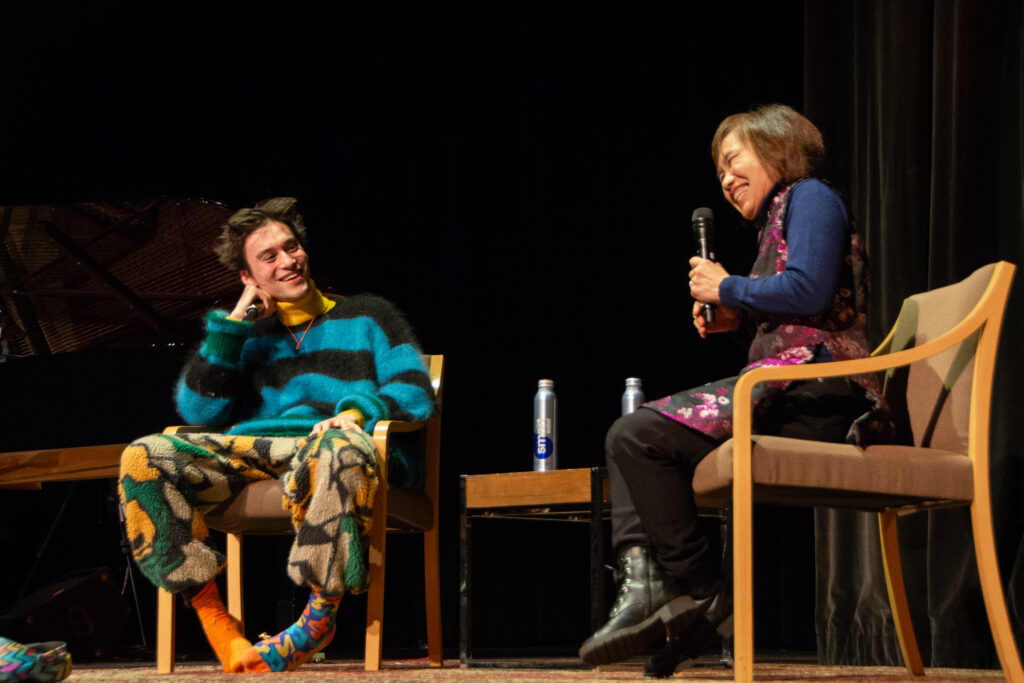
“The taskforce wanted to create an event where students and faculty would get the opportunity to hear from someone who is talented and creative and is making a career in music,” said Chen-Hafteck. “He was a perfect person to bring, being a living example of a successful contemporary musician. And the wisdom that he shared with us that day was way beyond anything I could expect! He really understands theory and how to follow the rules, and also how to break the rules when necessary to make his music interesting.”
After the conversation, Collier took time to answer student questions. One by one they lined up.
“I liked what he said about how you need to find something that resonates within yourself, and start with that when you are making music,” said Hannah Verduzco. “As classical musicians, we can sometimes get stuck in a niche, and we get worried if other people will love what we do. But we shouldn’t be measuring success that way.”
For Verduzco, Collier’s admonition to remember that music starts first and foremost with trust in oneself as a musician stood out. The privilege of making a life in music, of pursuing something that one truly loves, also came through in his answers to questions. A particular phrase that Collier spoke resonated with her—that you are seeking to make a life, not just a living, with music.
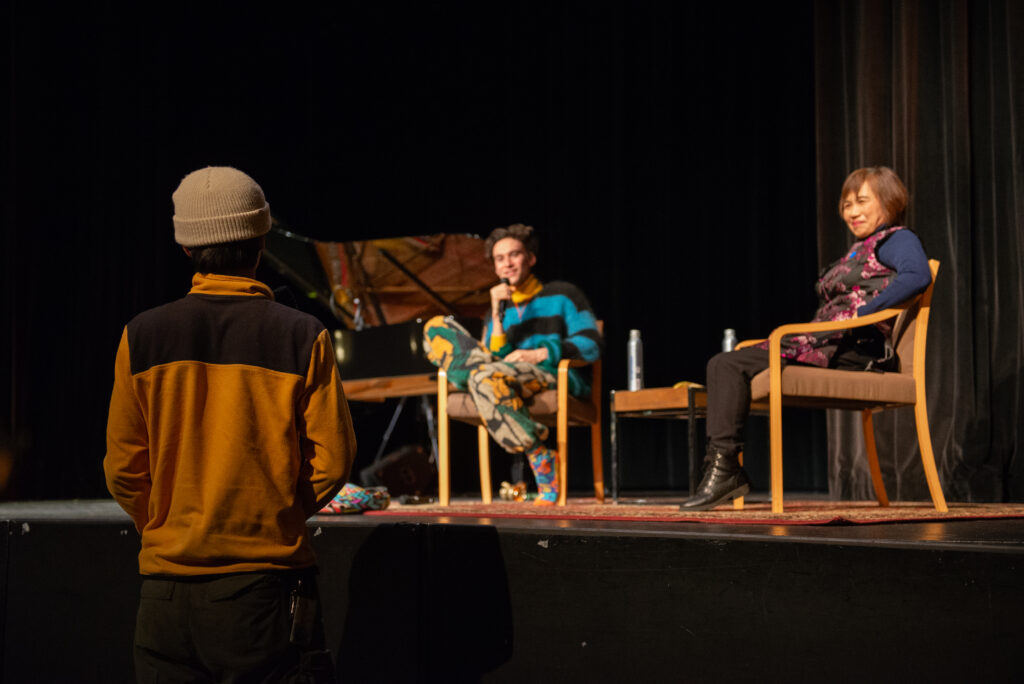
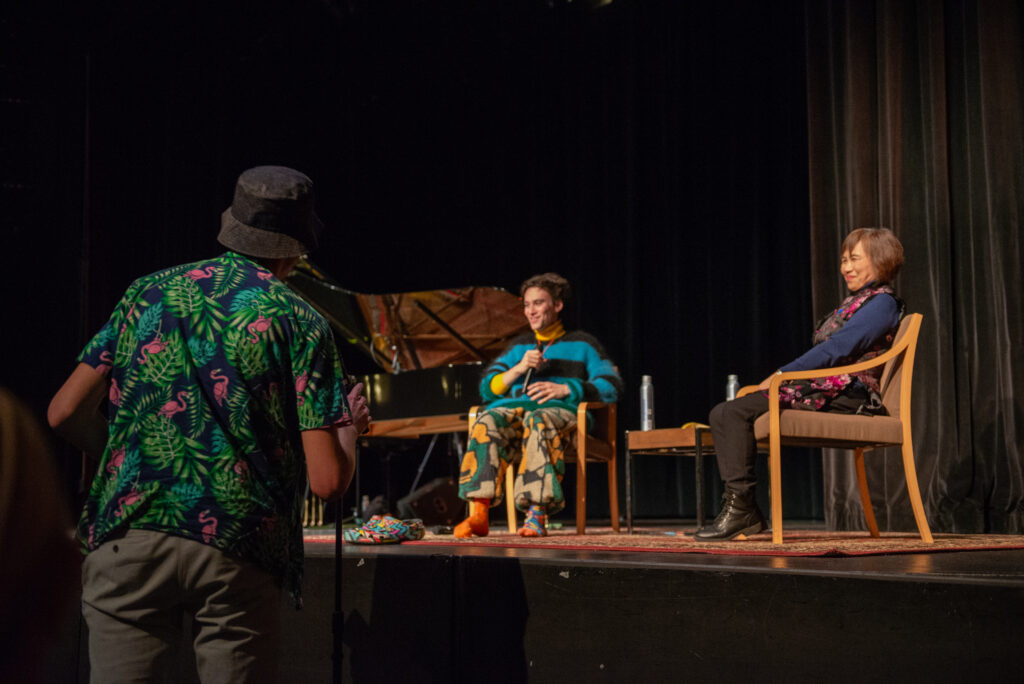
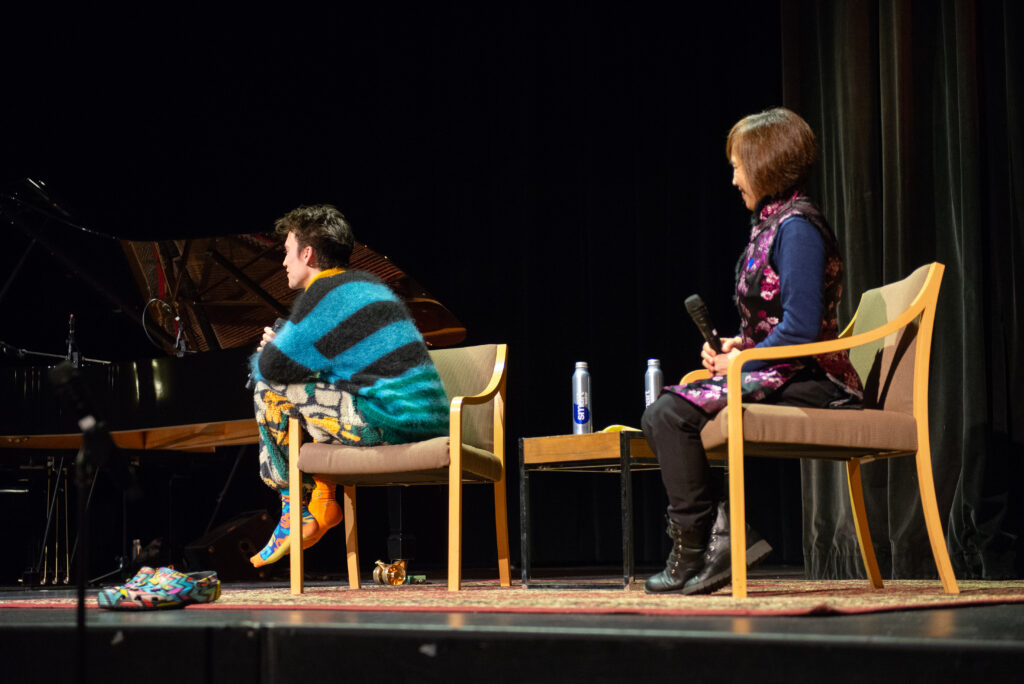
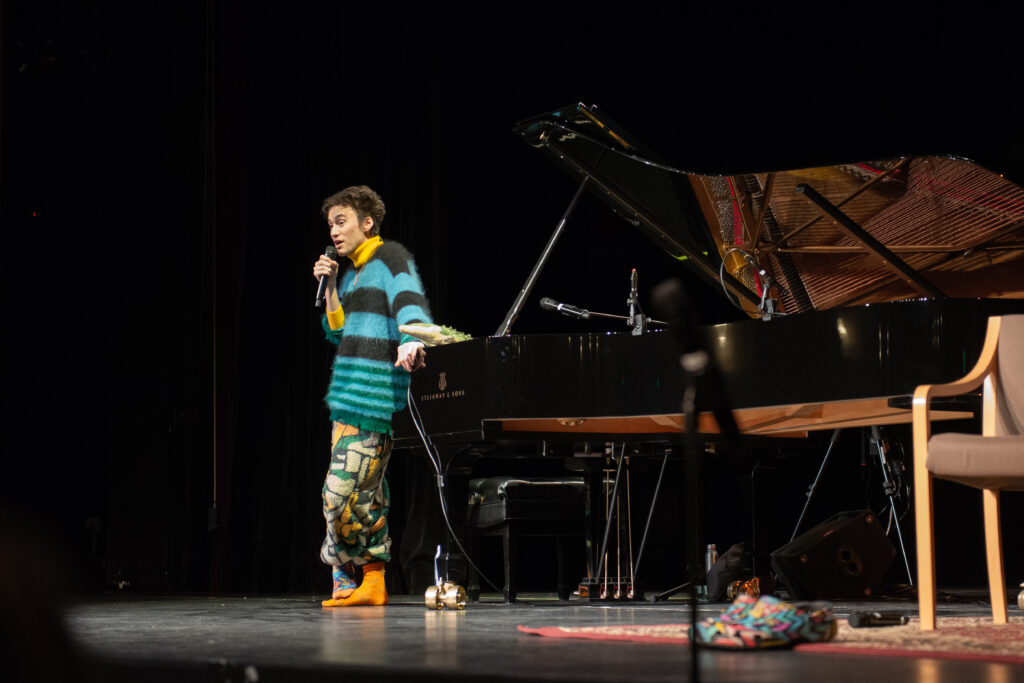
Collier’s deep understanding of theory also stood out for students. As Erica Hou recalled, his perfect pitch and willingness to break theory’s rules are both exciting and entertaining. “Granted, his rule breaking isn’t as far out there as some. He’s not like an Arnold Schoenberg,” said Hou. “He writes popular music, but way beyond what we normally hear. It’s the ‘beyondness’ that appeals to us.”
That Collier can write complicated, rule-bending music that still appeals so widely is itself a testament to what music can do. As Chen-Hafteck noted, the academic study of music can sometimes bury music’s fundamental purpose. “I’m often asked at conferences, ‘what music is appropriate in the classroom?,’ and my answer is, any good music” said Chen-Hafteck. “But sometimes we get distracted by this question and forget that the essence of music is the feelings and emotions that we experience from its sound, that connect us together, that touch us deep inside. That is good music. That’s what Jacob can do with his music.”
After questions, Collier returned to the piano to complete one final set, and one last audience choir for the evening. There was something deeply comforting about the level of participation and the power of the communal experience.
“We all started to sing with more confidence,” recalled Ashley Dao. “The sounds blended and became more unified.”
And on that note, the evening ended.
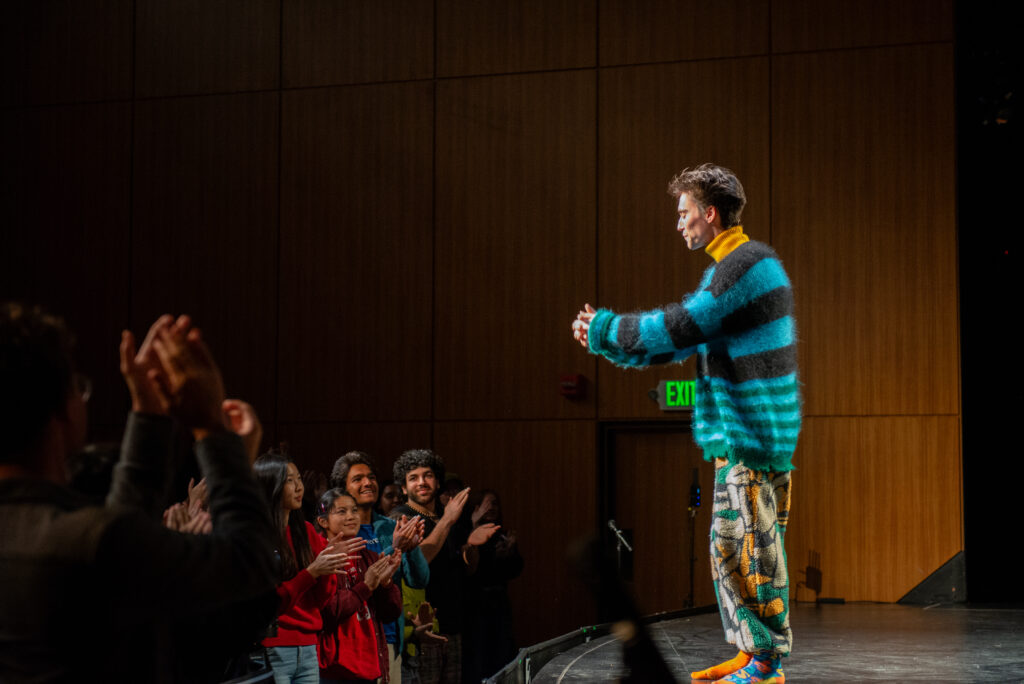
***
Backstage with Jacob Collier (photos by Erica Hou)
